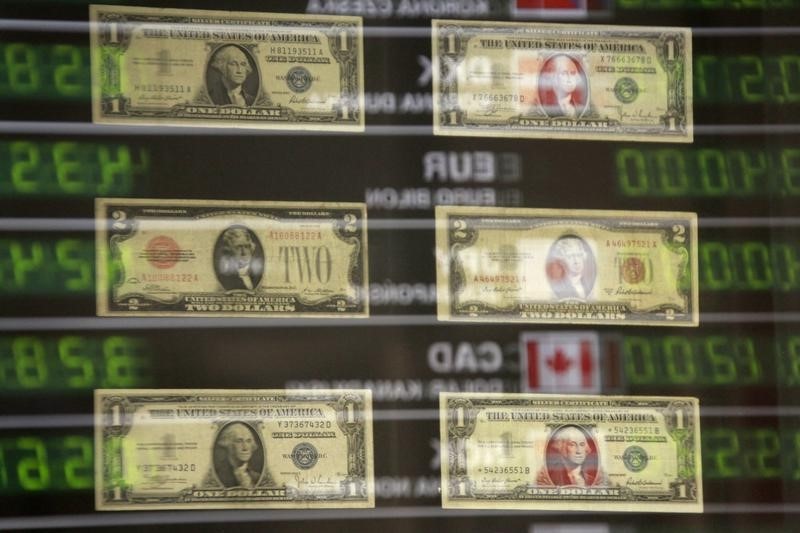* Canadian dollar at C$1.3680 or 73.10 U.S. cents
* Currency touches its strongest since Dec. 11 at C$1.3640
* Bond prices higher across the maturity curve
TORONTO, Feb 4 (Reuters) - The Canadian dollar rallied to a
nearly 8 week high against its U.S. counterpart on Thursday as
speculation the U.S. Federal Reserve will be sidelined this year
weighed on the greenback, while crude oil prices firmed.
The currency CAD= has rallied more than 7 percent since
hitting on Jan. 20 its weakest since 2003 at C$1.4689, helped by
expectations that the Bank of Canada will not cut rates in the
near term.
The U.S. dollar .DXY was back on the defensive after a
collapse in expectations of a further rise in U.S. interest
rates this year drove its biggest daily fall in over two months
on Wednesday.
Oil rose after the previous session's 7 percent
jump. U.S. crude CLc1 prices were up 1.64 percent
to $32.81 a barrel, while Brent crude LCOc1 added 0.26 percent
to $35.13. O/R
At 9:18 a.m. EST (1418 GMT), the Canadian dollar CAD=D4
was trading at C$1.3680 to the greenback, or 73.10 U.S. cents,
stronger than Wednesday's official close of C$1.3773, or 72.61
U.S. cents.
The currency touched its strongest since Dec. 11 at
C$1.3640, while its weakest level was C$1.3797.
The number of Americans filing for unemployment benefits
rose more than expected last week, suggesting some loss of
momentum in the labor market amid a sharp economic slowdown and
stock market selloff.
The Conference Board of Canada downgraded its 2016 growth
forecast for Canada to just 1.7 percent as the economy continues
to suffer from the further deterioration in oil prices.
Canadian government bond prices rose across the maturity
curve, with the two-year CA2YT=RR price up 1 Canadian cent to
yield 0.393 percent and the benchmark 10-year CA10YT=RR rising
10 Canadian cents to yield 1.143 percent.
On Wednesday, the 10-year yield hit a new record low at
1.084 percent as the market reappraised the Fed policy outlook.
Canadian employment data for January and trade data for
December are due on Friday ECONCA , as are U.S. jobs data.
